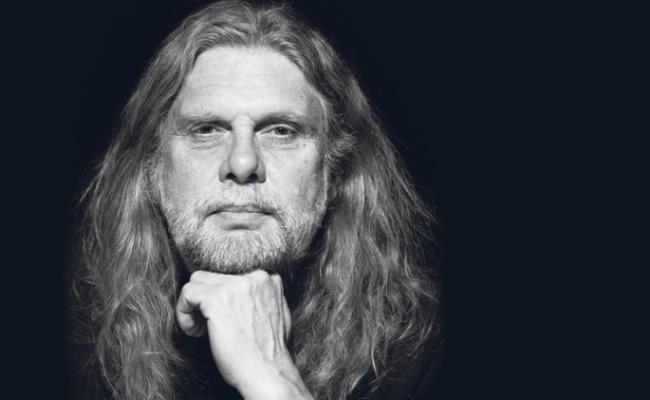Arne O. Holm says Is There Any Reason at All to Hold On to Arctic Cooperation?
The High North Dialogue conference is dominated by young people with faith in a future in the north. Here, the Nord University Rector, Hanne Solheim Hansen, Bodø Mayor Ida Pinnerød (Ap), Prime Minister Jonas Gahr Støre (Labor), and Director of the High North Center, Frode Mellemvik, meet the students from the High North Dialogue Academy. (Photo: Trine Jonassen)
(Commentary) Those who might believe that the cooperation between the Arctic states no longer has any value, have forgotten to tell the Arctic heads of state. The need for cooperation in the north was lifted to new heights during the High North Dialogue conference.
For three days, roughly 500 participants from over 50 countries participated in what could be perceived by outsiders as yet another High North conference. That is not the case. With a focus on the business sector and with a majority of delegates at the beginning of their careers in the north, not at the end, High North Dialogue is solid, relevant, and alert.
In each other's way
The program ranged from business opportunities in space to the seabed. Not to mention the conference's emphasis on the High North's international contribution and significance. In sum, the conference kicked the legs from out under claims of declining populations and a rising average age in the north. We must therefore look for an explanation elsewhere when the youth is nonetheless packing their bags and leaving.
Young researchers' future scenarios, as they were presented at the conference, ranged from the Arctic in a geopolitical and climatic balance, to the Arctic as the epicenter for a third world war, with cities drowning in meltwater from sea ice and glaciers.
None of these dreams, or problems, are solved within the scaled-down Arctic cooperation framework alone. One could even turn the issue around and say that, right now, the Arctic states are first and foremost in each other's way, both when it comes to climate and peace.
They are at the beginning of their careers in the north, not at the end.
East-West cooperation
The latter is obvious to everyone. Russia's war against Ukraine has split the Arctic in two, where one geographical half poses a real threat to a war breaking out between Russia and the other seven Arctic states. States that, in addition to being members of the Arctic Council, are also members of NATO.
Nor can climate issues be solved without some form of cooperation between the East and West in the North. A great deal of climate research, which is crucial to the solution to the climate crisis, lies fallow because the sanctions against Russia are preventing the necessary cooperation between Russian and Western researchers. That will be the case for the foreseeable future as the EU countries Sweden, Finland, and Denmark, have so far flatly rejected any attempt to open the doors into the Russian institutions of knowledge in which the research is managed.
Norway's foremost ambition, an ambition that is shared by the other six Western member countries, is to ensure the survival of the Arctic Council. The council is unlikely to do so should the sanctions regime against Russia become a main conflict.
However, the green shift also offers challenges for the seven countries that continue the cooperation within the Arctic Council. The most powerful Arctic state, the US, is currently serving up giant subsidiaries to attract investments and industries.
The official justification is to realize the green shift in the US.
Will not survive if the sanctions regime becomes a main conflict.
In reality, it is a step towards protectionism or a part of Donald Trump's relaunching of the old slogan "America First".
Fear in Europe
On the European side, the government calculators are running hot to match the American initiative. The fear of losing industries, jobs, and technology to the US is creeping further and further into the European public finances. And if the fear is great in the Arctic states that are members of the EU, it is even greater in the Arctic states outside of the EU, such as Norway.
In such a subsidy war, the national advantages, such as abundant access to green energy, for example, disappear in favor of a state-financed surplus of the investors' accounts. Because, at the end of the day, the shareholders do not ask whether the battery factory is fueled by green energy or brown coal. The only thing that matters is what is left on the bottom line.
The faith in a capitalistic system disappears.
Not only do the national advantages disappear, but so does the faith in a capitalistic system. When some, perhaps many, will be happy about it, it is because they forget that the bill ends up with you and me. The state, i.e. us, shoulders both risks and costs, while the private investors are left with the profit.
Straight through the cooperation
The challenges, including those that run straight through the Arctic cooperation, therefore cannot be solved through Arctic cooperation alone. But the Arctic Council will still be a meeting place, where the value of shared interests can be set up against special interests.
The world gripped tightly around international agreements when Donald Trump did his best to tear them apart. We did it in hope of a better world in the future.
We should do the same as Putin is wreaking havoc. At some point in the future, we will hopefully see the real value of having protected organizations such as the Arctic Council.
Also read
This commentary was originally published in Norwegian and has been translated by Birgitte Annie Molid Martinussen.


